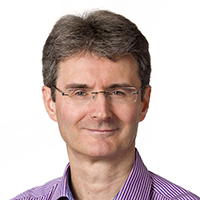

- Sébastien Pannelier
- Head of Structured Products, Tradition Genève 1959

- Tom Alford
- Deputy Editor, Treasury Management International
How Investors are Cleaning Oceans and Supporting Communities
A major Swiss interdealer broker reveals how its clients are able to help fund the removal of many tons of plastic from the oceans and give collectors a vital source of income.
As financial supporters of the global business community, banks and FIs have a responsibility towards sustainability. But investors are also increasingly expected to consider more carefully where they place their money. However, concerns about the actual impact of portfolios geared to supporting sustainable causes may cause many to delay investment decisions. This is forcing the more proactive financial players to find new ways to deliver on their obligations.
One such provider is Compagnie Financière Tradition is the world’s third largest interdealer broker. It operates as a marketplace and intermediary, facilitating transactions for a wide range of clients. Its Geneva office, Tradition Securities And Futures Paris, succursale de Genève, referred hereafter as Tradition Genève 1959, authorized and regulated by FINMA was initially launched to serve some of the biggest hedge funds but it also now works with long-established Swiss private banks, multifamily offices, wealth managers and a number of smaller private banks.
With some financially powerful and astute clients ultimately benefiting from its products, Tradition Genève 1959 has recently incorporated a new offering, designed to leverage that wealth for the greater good. As Sébastien Pannelier, Head of Structured Products, Tradition Genève 1959, explains: “The idea is to offer products that have a real and measurable positive impact on the planet”.
Of course, this is what many FIs say. However, having raised the impact initiative with the aim of creating financial products to serve every one of the UN’s 17 Sustainability Development Goals (SDGs), part of Tradition Genève 1959’s goal is to seek out organisations that can help it deliver.
Partners for the planet
One such organisation is Plastic Bank, a for-profit social enterprise that is helping to clear discarded plastic from the oceans and waterways of the world. According to UN Department of Economic and Social Affairs estimates, in 2023 alone some 18 million tons of plastic were ocean-bound. That figure is increasing.
With a substantial volume of discarded plastics remaining close to the shoreline, Plastic Bank says it pays local collectors, often in the poorest parts of the world, to gather and sort plastic waste, working through a network of globally dispersed collection and distribution centres.
Collectors are paid in cash, or alternatively with subsidised food or educational materials. Sorted plastic is reduced to flakes, with batches audited through a live blockchain-based system, tracing every stage as it moves back up the supply chain. Ultimately, it reaches manufacturers that are subscribed to the project, such as SC Johnson, which will use the recovered ocean plastic for their own products.
Flexible funding
For Tradition Genève 1959 to be able to support the collection process, a portion of the revenue generated by each client from its impact-designated structured product set is used. The amount of support given is based on a simple formula: every €1m invested will finance the collection of 4.64 tons of discarded plastic from shorelines and waterways.
A wealth manager might choose to fund a share of this itself, or if the end client wishes to participate directly, it can elect to donate a percentage of its investment return. In some cases, the client and the wealth manager may agree to a 50/50 split, as indeed might the wealth manager and Tradition Genève 1959.
The exact form of the investments generating support for Plastic Bank is the decision of the client, with the whole process intended to be flexible.
Assessing the options
Within the scope of the selected investment label scheme (see box: Colour-coding sustainability) the financial product itself, its tenor and even risk level, can be chosen freely by the investor. Although structured, this is not a specified instrument.
Of course, this means that each investment label has a huge range of potential underlying assets. But this is reduced because Tradition Genève 1959 has drafted a list of pertinent exclusions, including stock of companies that are considered substantial plastic users. But beyond the exclusion list, Tradition Genève 1959 is free to build the product that the client wants.
To do this effectively, clients have to understand the impact of the underlying stocks of each structured product. To ensure the right selections are made, Tradition Genève 1959 works with Impaakt. This vendor provides it with a SaaS platform enabling investors and FIs to access what it says are “transparent and relevant metrics”, including impact assessment scores based on each SDG.
Impaakt data is collated, using a standard framework, by a global army of more than 55,000 citizen, consumer, and employee stakeholders. Together they have amassed around one million materiality assessments for at least 5,000 listed and non-listed companies of all sizes and sectors. Notably it includes sustainability scores for businesses not covered by mainstream sources.
The independence of the data providers, and the standard framework they use, aims to deliver a score closer to consensus than a single-source provider might achieve, suggests Pannelier. “It measures true impact, without being hindered by greenwashing risks that are present through the single-expert, ‘tick-box’ approach,” he remarks. It means a Blue Note investor building a portfolio of two or three stocks, but presented with an option of 10 or 20, can use Impaakt to find those that best match their aims and those of SDG 14 (see box: Colour-coding sustainability).
BOX 1: Colour-coding sustainability
As part of Tradition Genève 1959’s goal to engage with all 17 of the UN’s SDGs, its partnership with Plastic Bank tackles SDG 14, ‘Life below water’ (Conserve and sustainably use the oceans, seas and marine resources for sustainable development.). Within the Impact product set, this has been attributed a Blue Note investment label, following the UN’s SDG colour-coding method.
This is complemented with a similar Impact scheme set up with Geneva-based Union for International Cancer Control (UICC), the world’s oldest and largest global membership organisation dedicated to taking action on cancer. Every €1m invested funds breast cancer screening for around 300 women in UN-defined Least Developed Countries. This is part of SDG 10, covering ‘Reduced inequalities’. Tradition Genève 1959 has accorded this a Pink Note investment label.
Likewise, its Green Note investment label is focused on SDG 15’s ‘Life on land’ goals, which Tradition Genève 1959 has decided to direct towards supporting reforestation.
Making it ‘more real’
Client response so far indicates that the general flexibility of Tradition Genève 1959’s approach is appreciated. As a broker-dealer, it is free to select the most appropriate components of its impact label initiative. It is also free to select the FIs that it believes will provide the best price. For the end client, Tradition Genève 1959 believes that this goes some way to addressing best execution and the expected performance of their portfolio.
Of course, impact-investing clients are looking to make a difference, and with Plastic Bank there is an additional pull. With collection centres as far afield as Brazil, Egypt, Thailand, Indonesia, and the Philippines, when the end client of the wealth manager can choose to support a location that has more personal significance, it has greater influence over their involvement. If they can choose location, investors are likely to become more connected to the impact that they are generating. A personal response tends to generate more traction.
In addition to locating the point of impact of their investment, investors are provided with a tailored reporting dashboard (which can be white-labelled by the asset manager). The understanding is that being able to select a location, and then see the direct effect of their investment, enables investors to be more directly connected than with a traditional green bond, for example, where they never really know where their money goes or the effect it is having. As Pannelier describes it: “This is more real”.
The data capture feeding the Plastic Bank dashboard – and investor enthusiasm – is provided via blockchain-linked APIs. Each collector has a mobile app into which they upload basic information supplied to them once at their collection centre, such as the type, colour and weight of plastic.
The investor can then see collector profiles, and live information for each, including what they have collected, their earnings, current recycling status of their collections, and even the upstream buyer once the plastic is processed. For Pannelier, “it’s a window into the lives that are positively impacted by the project”.



